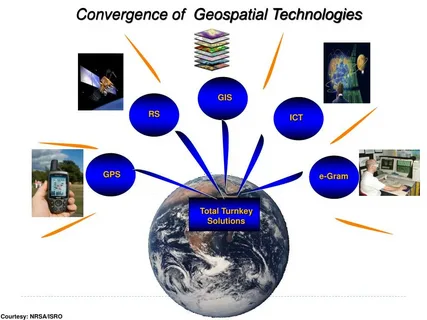The geospatial technology industry is rapidly expanding as advancements in satellite imaging, GIS (Geographic Information Systems), and remote sensing transform how businesses, governments, and researchers understand and interact with the world. For professionals passionate about technology and spatial data, career opportunities in the geospatial technology industry are both diverse and promising.
What is the Geospatial Technology Industry?
Geospatial technology involves tools and techniques used to collect, analyze, and visualize geographic data. This industry encompasses GIS software, GPS systems, remote sensing technologies, and mapping applications. These technologies are applied in various fields such as urban planning, environmental monitoring, disaster management, agriculture, and defense.
Growing Demand for Geospatial Experts
As organizations increasingly rely on spatial data for decision-making, the demand for skilled geospatial professionals has soared. From data analysts to software developers specializing in geospatial tools, the industry offers a range of career paths. This growth is driven by the need to improve infrastructure planning, resource management, and real-time navigation systems.
Diverse Career Opportunities in the Geospatial Technology Industry
GIS Analyst and Specialist
GIS analysts play a crucial role in interpreting spatial data to create detailed maps and reports. They work closely with government agencies, environmental groups, and private companies to provide insights that support strategic planning and operations.
Remote Sensing Specialist
Remote sensing specialists use satellite or aerial imagery to gather information about the Earth’s surface. Their expertise is vital for monitoring climate change, natural disasters, and agricultural trends.
Geospatial Software Developer
These professionals design and develop software applications that process spatial data. They are key to creating innovative tools that make geospatial data accessible and useful for a broad audience.
Cartographer
Cartographers focus on the art and science of map-making. With advances in digital mapping, cartographers are using sophisticated tools to produce accurate and interactive maps.
Why Choose a Career in the Geospatial Technology Industry?
The geospatial technology industry offers not only strong job prospects but also the opportunity to work on impactful projects. Careers in this field contribute to sustainable development, disaster response, and smart city initiatives. Moreover, professionals often enjoy competitive salaries and opportunities for continuous learning and specialization.
Conclusion
With the increasing integration of spatial data into everyday life, career opportunities in the geospatial technology industry are set to grow even further. Whether you are interested in data analysis, software development, or environmental monitoring, this field provides a dynamic and rewarding career path. Embracing the geospatial technology industry today can lead to a future full of innovation and discovery.


